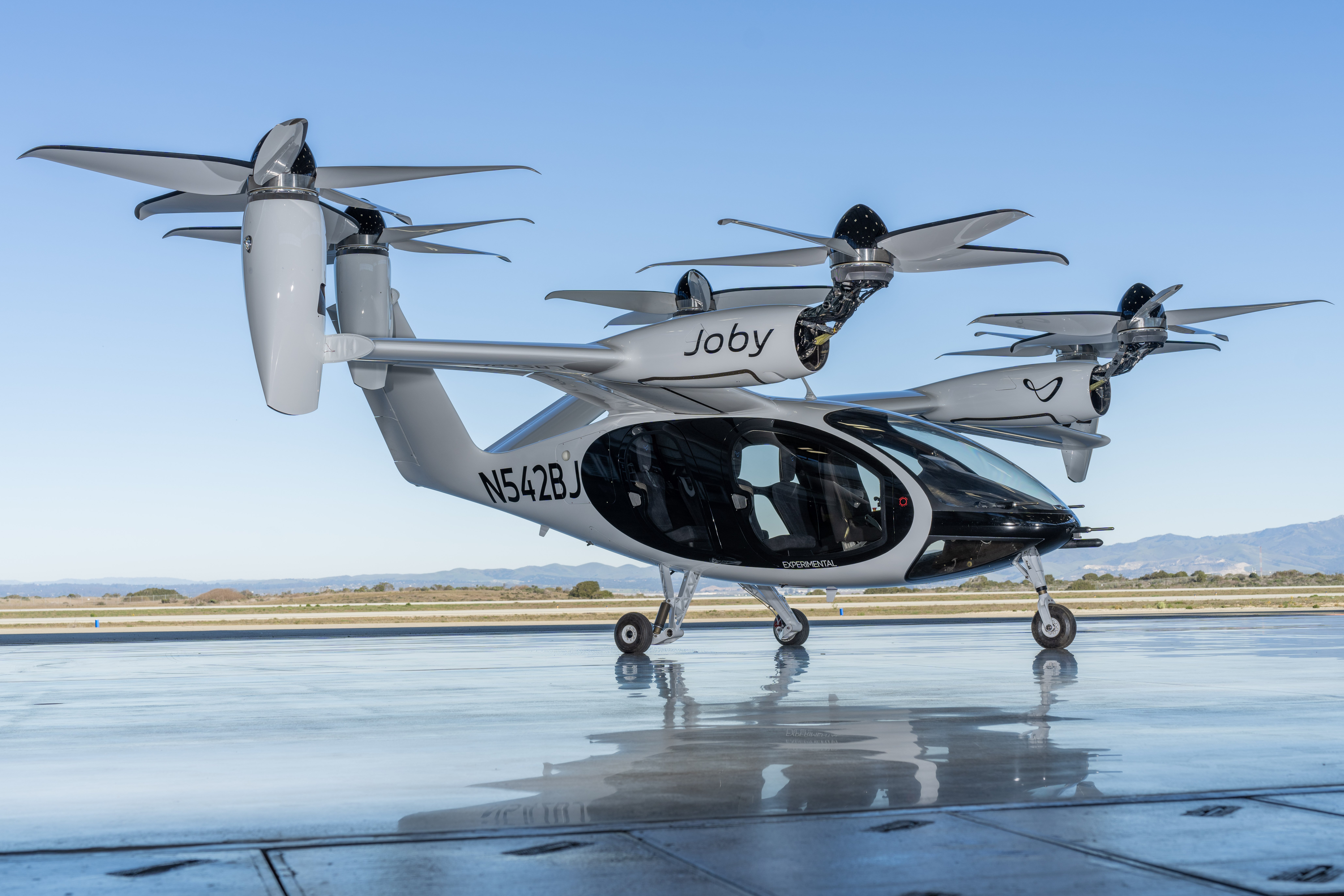Click Here to View This Page on Production Frontend
Click Here to Export Node Content
Click Here to View Printer-Friendly Version (Raw Backend)
Note: front-end display has links to styled print versions.
Content Node ID: 419552
In the wake of reports this week that the FAA intends to change the regulatory basis for certifying and approving new eVTOL aircraft, Joby Aviation says it still expects to meet its goal of being ready to launch commercial operations before the end of 2024. Briefing investors on first-quarter financial results on May 12, founder and CEO JoeBen Bevirt said the public company sees no need to change its guidance on the program timeline in view of anticipated changes by the U.S. aviation safety agency that the company characterized as “administrative shifts.”
“We have a 10-year history working with the FAA and we share their vision for reaching the next level of safety,” Bevirt commented. “We are in active conversations with them about the most expedient route and what [the FAA] said this week is that all development work so far remains valid and they don’t expect the change of approach to add time to type certification and operational approval.”
According to Joby, it has built most of the large composite parts for the first "production-intent" example of its four-passenger eVTOL aircraft and also has manufactured the first "design-intent" version of its electric propulsion unit. The California-based company also stated that Joby has filed about 80 percent of the means of compliance terms with the FAA, which now is reviewing the rest of its application.
Didier Papadopoulos, Joby’s head of programs and systems, explained to analysts that the company will submit to the FAA the remaining area-specific certification plans covering particular aspects of the aircraft design as planned, once the agency endorses the complete means of compliance. In March, the company submitted a plan covering cabin safety, which the FAA has already approved.
Predictably, given rising operating costs associated with increased investments in aircraft development, Joby’s net loss for the quarter ending March 31 was $20.8 million higher than during the same period last year, at $62.3 million. Research and development spending more than doubled to $72 million. The company’s balance sheet at the end of the quarter showed $1.2 billion in cash and other capital, and it continues to generate some early revenues from contracts awarded under U.S. government programs, such as the U.S. Air Force’s Agility Prime initiative and NASA’s Advanced Air Mobility National Campaign.
Questioned about the ongoing National Transportation Safety Board investigation into the February 16, 2022, accident that destroyed one of Joby's pre-production prototypes, Bevirt said that "valuable learnings" have come from the incident. "We will take those, but we don't expect them to have any material impact on the program or the aircraft design," he concluded.
